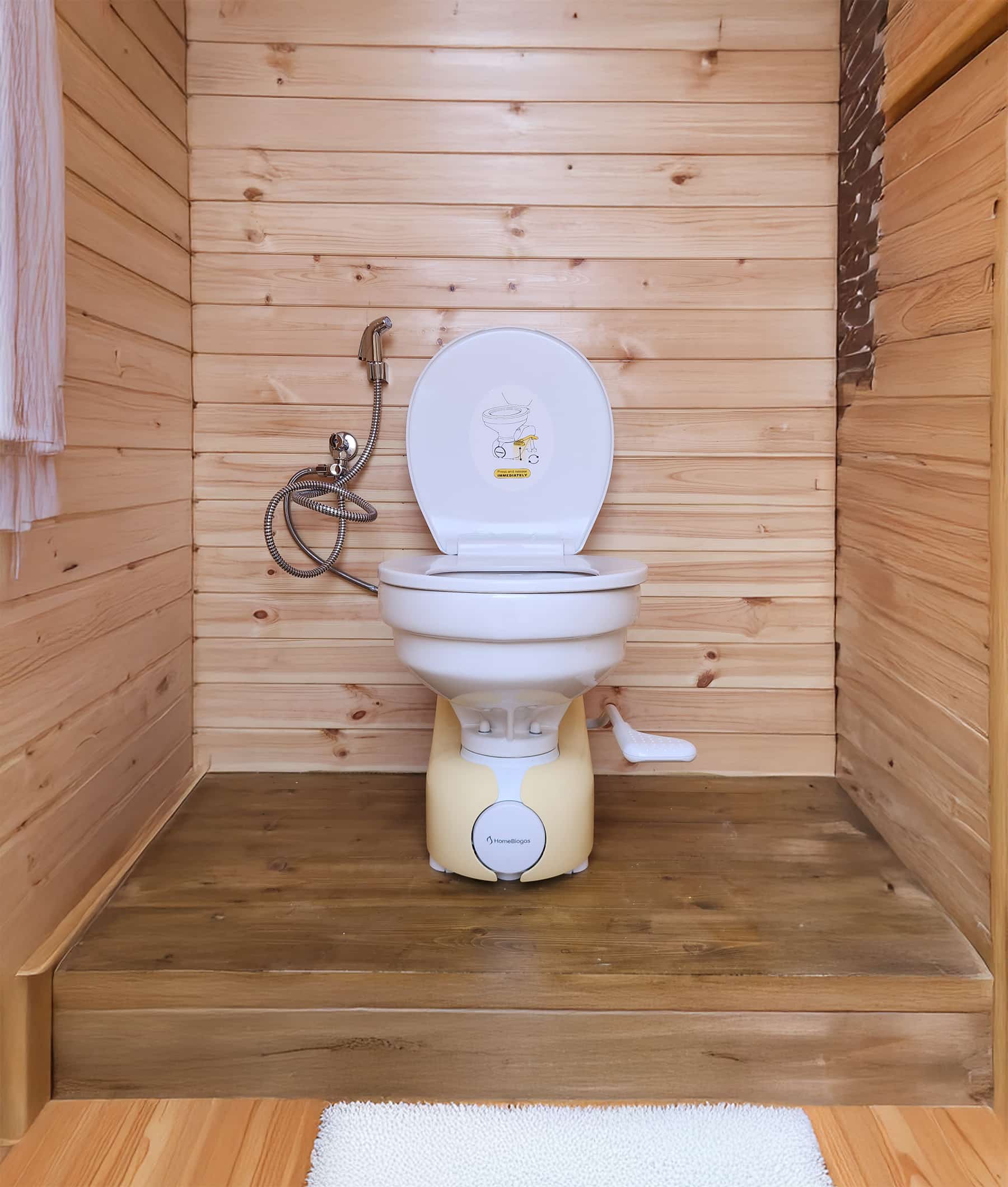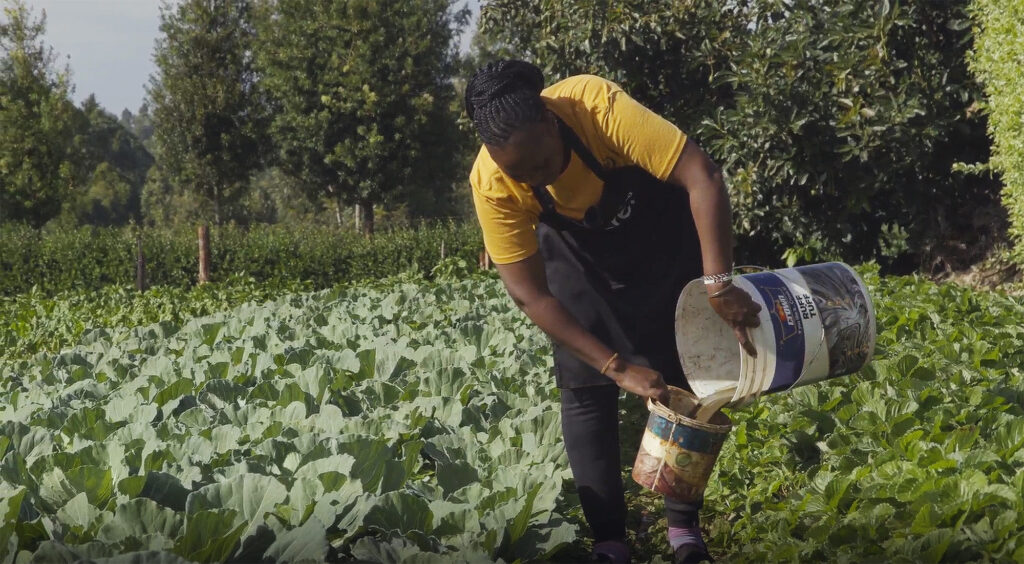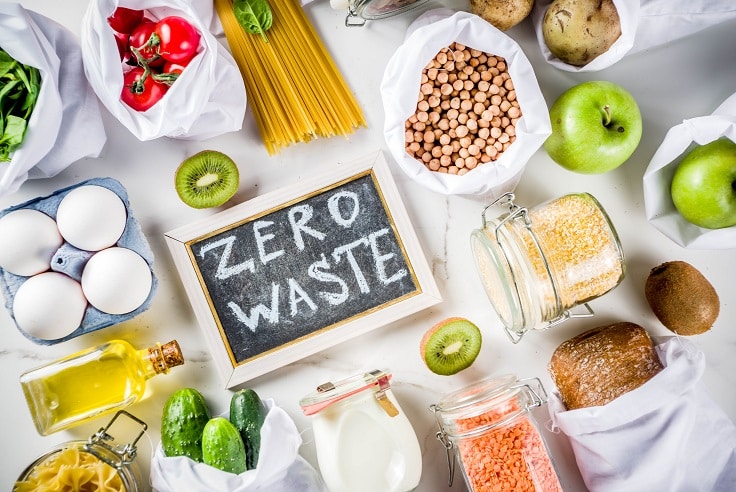
The concept of a zero-waste lifestyle explained
When thinking of “zero-waste life,” stories like Lauren Singer’s might come to mind — three years’ worth of trash fit in a mason jar — that’s what most people produce in an hour or less! It’s understandable that the concept suddenly becomes overwhelming.
So, does it still make sense to get started? Short answer: Yes.
When you choose a zero-waste lifestyle, you aim to minimize the amount of waste you produce as much as possible. An exact definition of a zero-waste lifestyle could vary with your community. Still, generally speaking, you can achieve a no-waste lifestyle by making conscious choices to reduce, reuse, and recycle, to send nothing to the landfill or incinerator.
Think of it as a mindset shift that helps you build new habits to avoid creating waste. You learn to be mindful of daily activities that, once changed, can significantly impact the garbage you produce — from buying products with minimal packaging to carrying a reusable water bottle or using washable containers for food storage instead of disposable ones.
A zero-waste lifestyle also involves finding creative ways to give items a second life. Instead of throwing things away, you look for opportunities to repair, repurpose, donate, or recycle them.
Zero-waste living is about making small, sustainable changes that add up over time. The secret is to remain mindful of your choices and continuously seek ways to minimize waste in your daily life.
What is the objective of a zero-waste lifestyle?
Living a zero-waste lifestyle is taking control of your consumption habits. You learn to declutter your life and make conscious choices that positively impact your well-being and the environment. You can have one or multiple goals, from reducing your carbon footprint to preserving resources to minimizing your impact on the ecosystem.
Reducing waste means conserving water, energy, raw materials, and fossil fuels for more efficient and responsible use of resources. At the same time, these efforts to consume less minimize the release of harmful pollutants into the environment. When you work to achieve a no-waste lifestyle, you reduce the amount of trash in landfills, groundwaters, and oceans.
Another objective of a zero-waste lifestyle is reducing greenhouse gas emissions. With less demand for greenhouse gas-intensive products, we can minimize energy consumption associated with waste management.
The 5 principles of zero waste
- Refuse
Consume less. Say no to single-use plastics, freebies, promotional materials, or excess packaging. They won’t end up in a trash can if you don’t use them.
- Reduce
Be more intentional about your consumption habits with a minimalist mindset. Prioritizing quality over quantity makes you less likely to generate waste.
- Reuse
Find creative ways to give things a second life to maximize their utility. Instead of throwing stuff away, repair, repurpose, or share it with others.
- Recycle
After reducing and reusing, the last resort is converting waste materials into new products. The downside is that recycling has limitations, and not all materials can be recycled efficiently.
- Rot (Compost)
Turn food scraps and yard trimmings into nutrient-rich compost. This way, you keep organic waste from landfills, reduce methane emissions, and help improve soil health.
First steps for a zero-waste lifestyle
No-waste living is hard to achieve because it requires drastic changes in your daily habits. The good news is that gradual changes can still significantly impact the environment and inspire others to join in the effort.
Start with critically evaluating your trash to understand the types and amounts of waste you generate. This way, you can set realistic goals for reducing waste and making changes.
The next step towards a zero-waste life is education. Learn about local waste reduction initiatives, recycling guidelines, and composting options.
Then you can gradually eliminate disposable items like plastic bags, straws, cutlery, and water bottles. Replace them with reusable alternatives, such as cloth bags, stainless steel water bottles, jars, and reusable coffee cups and utensils.
12 Best Tips for a zero-waste Lifestyle
Buy reusable items
Make a list of reusable items that align with your lifestyle and needs — start with the things you know you’ll frequently use for a more significant impact. For increased efficiency, buy reusable items that serve multiple purposes. For example, you can use a stainless steel water bottle for both hot and cold beverages.
Choose reusable items from eco-friendly materials, like stainless steel, glass, bamboo, silicone, or organic cotton.
Things to consider when buying reusable items:
- Size
- Portability
- Cleaning options
- Maintenance requirements
Eliminate paper towels from your house
Every year, paper towels turn into 254 million tons of trash — that’s 695,000 tons of paper towel waste daily! It can be avoided by replacing them with reusable alternatives like cloth towels, dishcloths, or microfiber cloths.
Things to consider:
- The quality of the materials
- Proper hygiene and cleanliness
- The number of reusable cloths needed
Set up a designated recycling station in your home
Learn to differentiate recyclables and collect them by category — paper, cardboard, plastic bottles, glass, and metal cans. Then, dedicate some space to building a home recycling station. It could be a corner of your kitchen, a utility room, or a garage.
Label your recycling bins to make it easy for everyone in your family to leave the waste in the dedicated container.
Things to consider when you start recycling:
- The type of waste you produce
- How you can dispose of the waste
- Ease of access for all household members
- Available space and proximity to waste generation areas
Join a zero-waste community
A zero-waste community allows you to join forces with like-minded individuals as you shift to a no-waste lifestyle. You get to learn from each other’s experiences, access first-hand zero-waste life examples, and collaborate on projects promoting waste reduction. Furthermore, such a community will provide a robust support system to help you stay motivated as you take your first steps in your sustainability journey.
Things to consider when joining a zero-waste community:
- The community’s values, principles, and goals
- The community’s approach to zero-waste living
- Your availability to participate in the community’s events
- Your willingness to share your knowledge and experiences
Repair and repurpose
Instead of discarding what’s broken, find ways to expand its lifespan. It helps save money and resources, reducing the environmental impact associated with manufacturing and disposal.
Plus, repurposing encourages creativity and gives old items a new purpose, preventing them from ending up in landfills.
Things to consider when repairing or repurposing:
- Your DIY skills and available tools
- The damage and cost-effectiveness of repairs
- A list of professionals or a zero-waste community for support
- The functionality and aesthetics of the new purpose so it aligns with your needs and preferences

Reduce food waste
On average, we waste about one-third of the food we purchase, continuously throwing away resources used in food production and distribution — such as water, energy, and land. Our habit also contributes to greenhouse gas emissions by decomposing food waste in landfills.
To avoid it, plan meals and create shopping lists based on what you need. This way, you don’t over-purchase and consume perishable items before they spoil. Another simple way to reduce food waste is by adequately storing food through refrigeration, freezing, and using airtight containers.
Things to consider for effective food waste management:
- Portion sizes
- Expiration dates and the difference between “sell by,” “use by,” and “best by” labels
- Local initiatives that redistribute surplus food to those in need (food banks or community organizations)
Compost organic waste
What about unavoidable food scraps or other organic waste, such as gardening residues? Composting is a highly effective way to transform them into nutrient-rich compost for your plants and lawn. You can compost in your back garden, or if you live in an apartment or urban area with limited outdoor space, you can consider bokashi composting or vermicomposting in a small bin, for example.
Things to consider when composting:
- Composting methods
- Available time for maintenance
- Size and consistency of compostable materials
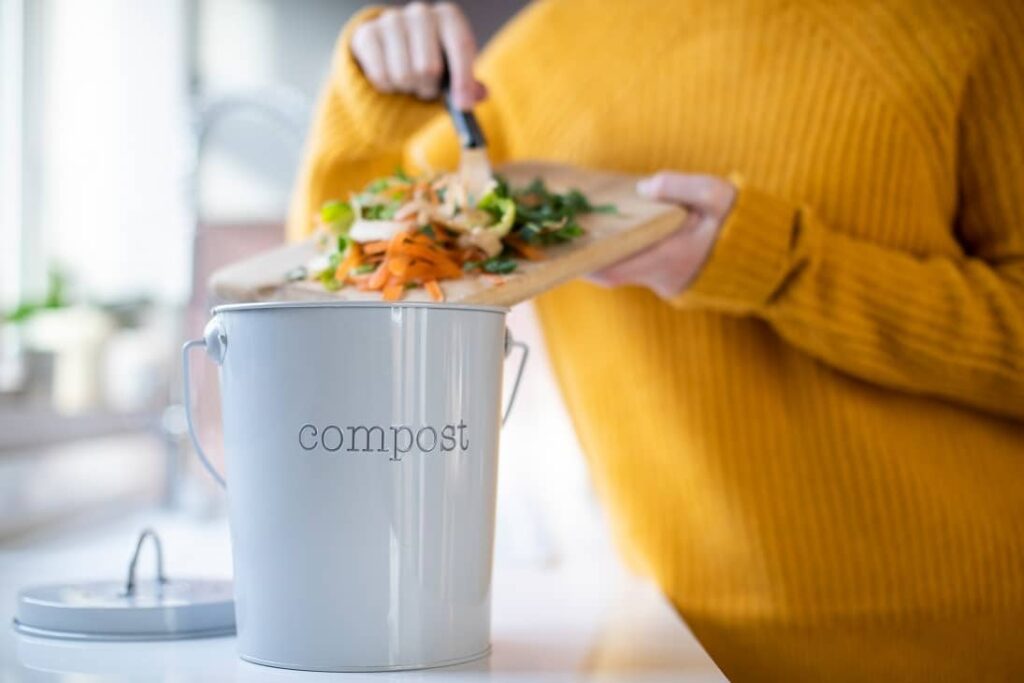
Buy package-free
Packaging is a major contributor to our total waste, increasing the amount of materials that end up in landfills and pollute our ecosystems. By choosing package-free products, you support a more sustainable and circular economy, and businesses are compelled to rethink their packaging strategies.
It’s a challenging step, as not all products are available without packaging, particularly in supermarkets. It may require buying from specialized stores, farmers’ markets, or stores prioritizing package-free options. Plus, it might be inconvenient at times.
Things to consider when buying package-free:
- The costs of buying all the necessary containers and bags
- Opportunities presented by bulk purchasing for certain items
- Feasibility of package-free options for the specific thing you need
- New sustainable brands and local producers who may offer package-free alternatives
Go digital
Start small with converting paper-based billing and statements to electronic versions. You can also shift to online subscriptions for magazines, newspapers, and other reading materials. And, if you want to take this even further, you can opt for digital tools for note-taking, calendars, or to-do list apps.
It’s not about quitting everything that makes you happy but making small changes that will have a long-term impact on the environment and your lifestyle — the less paper you use, the more decluttered your space will be.
Things to consider when going digital:
- The level of digital literacy in your household
- Available devices for accessing and using digital documents
- Available backup systems and data management best practices to protect your digital files
Reduce energy consumption
A waste-free lifestyle includes conserving energy. Adopt simple habits like turning off lights and electronics when not in use instead of leaving them on standby mode. Going from artificial lighting and air conditioning to natural light and ventilation can also help minimize energy consumption.
In the long run, consider investing in energy-efficient appliances, power strips, and smart plugs to quickly turn off multiple devices at once and prevent standby power consumption. Moreover, if available in your area, you can opt for renewable energy sources, such as solar or wind power.
Things to consider:
- Your household’s energy needs
- The cost-effectiveness of substituting old appliances
- Local regulations and incentives for installing solar panels or accessing renewable energy programs
Give sustainable gifts
Offer experiences or handmade, local gifts instead of items wrapped in excessive packaging. Or opt for items with sustainable packaging options like recycled or reusable wrapping materials.
Things to consider when opting for sustainable gifts:
- The quality and lifespan of the gift
- The recipient’s preferences and lifestyle
- Return policies and opportunities for repairing and repurposing
Buy zero-waste personal hygiene products
From bamboo toothbrushes to zero-waste deodorant or even makeup, there are multiple ways to cut down on plastic hygiene products that end up in landfills and oceans. These eco-friendly options are made from natural and sustainable materials, which decreases their environmental impact and makes up for a healthier choice.
It can be a trial-and-error process at first, but with patience and perseverance, you can find the zero-waste personal hygiene products that work best for you.
Things to consider:
- Comfort and convenience
- Proper hygiene and sanitization best practices
- Usage instructions and maintenance requirements
How HomeBiogas supports zero-waste lifestyle
HomeBiogas systems can play a crucial role in supporting a zero-waste lifestyle, supporting homeowners in three significant areas:
- Waste management. The HomeBiogas biodigester allows homeowners to recycle organic waste, such as food scraps, animal manure, and human waste. This way, nothing gets lost or ends up in landfills, where it only produces harmful methane gas.
- Green energy source. The biogas produced from the digester can be used for cooking, heating, and even generating electricity. It reduces your dependence on fossil fuels, helping you to significantly reduce your house’s carbon footprint.
- Eco-friendly fertilizer for sustainable agriculture. Besides biogas, the biodigester produces nutrient-rich compost that supports plant growth and enriches the soil.
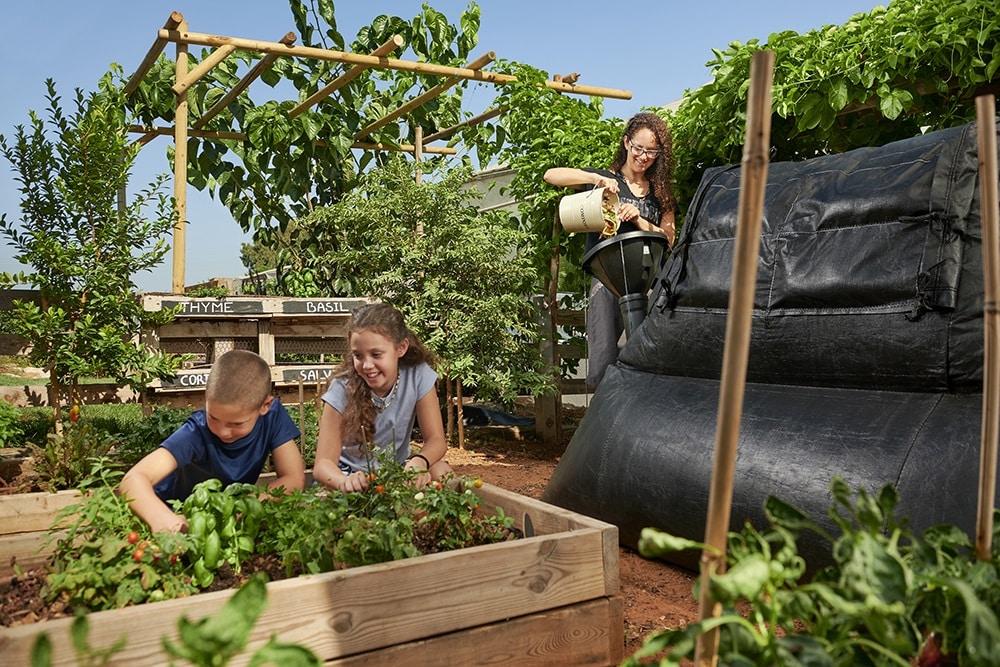
What’s Next?
Transitioning to a zero-waste lifestyle is a process, and it’s okay to start small and make gradual changes as you get used to your new life. Whether you begin with reusable shopping bags or buy a reusable coffee cup, what matters is that you stick to your habit and celebrate your small wins, knowing that their long-term impact on the planet matters.
Every step you take towards reducing waste counts.

